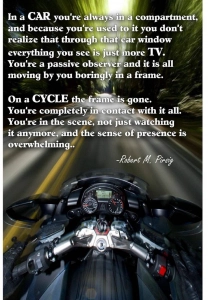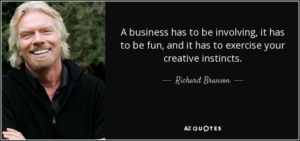Business Development and Sales are Two Different Doors to Open
Posted here with the author’s permission. This is a very important article for those who hire salespeople.

Business Development and Sales are
Two Different Doors to Open
There's a significant difference between the responsibilities of a Director of Business Development and a Salesperson.
While both roles aim to drive revenue and foster business growth, they generally focus on different aspects of the sales cycle, strategy, and execution.
Let’s break down the key distinctions:
1. Scope and Focus
- Director of Business Development (BD): Strategic and Long-Term Focus: The Director of BD is primarily responsible for building and executing long-term growth strategies. They are more involved in shaping the company’s overall approach to market expansion and growth, looking beyond immediate sales and toward future opportunities.Opening Doors to Larger Opportunities: BD Directors tend to focus on larger, high-value opportunities that might take longer to cultivate. This could involve enterprise-level partnerships, strategic alliances, or opening up new markets. They are often looking for ways to create sustainable, scalable opportunities for the business, such as establishing partnerships with key industry players or exploring new market verticals.High-Level Relationship Building: While salespeople focus on closing individual deals, a BD Director focuses on establishing relationships with potential partners, key stakeholders, and strategic investorsthat can lead to large-scale growth opportunities.
- Salesperson: Tactical and Short-Term Focus: Salespeople are generally more focused on the immediate revenue generation aspect of the sales process. Their role is to qualify leads, nurture prospects, and close deals, often with a more defined target for monthly, quarterly, or annual sales quotas.Individual Deal Focus: Salespeople are responsible for identifying and pursuing individual sales opportunities, often handling one-to-one sales interactions through outreach, meetings, demos, and follow-ups. They are typically focused on converting prospects into customers, which usually involves shorter sales cycles compared to BD’s long-term relationship-building efforts.
2. Sales Cycle vs. Business Development Cycle
- Director of Business Development: Earlier Stages of the Sales Funnel: The BD Director is heavily involved in the top of the funnel—generating leads, identifying strategic opportunities, and building partnerships. Their work often focuses on securing meetings, forging relationships, and creating awareness of the company’s offerings among key stakeholders.They may also help establish sales pipelines for the organization, but they focus more on the strategic alignment between the company’s goals and larger market opportunities, helping to move the company into new territories, larger accounts, or strategic alliances.
- Salesperson: Middle to Bottom of the Sales Funnel: Salespeople are typically focused on the middle and bottom of the sales funnel, where leads are qualified and then converted into paying customers. They nurture the relationship through ongoing communication, demos, negotiations, and deal closures. Their primary task is to close sales from leads that have already been identified and vetted.
3. Involvement in Marketing, CRM, and Funnels
- Director of Business Development: Marketing Alignment: BD Directors often work closely with the marketing team to help shape the messaging and the target audience for outbound and inbound strategies. They ensure that the business development efforts are aligned with the company’s marketing goals, particularly in terms of lead generation, branding, and market positioning.CRM and Analytics: While BD Directors may not always be in the weeds of day-to-day CRM management, they often have a strategic view of CRM systems to track high-level interactions and monitor the progress of key partnerships and strategic deals. Social Media and Content Strategy: Depending on the organization, the BD Director may also contribute to social media and content strategies, especially when those are tied to thought leadership, industry positioning, or strategic alliances.Sales Funnel Development: The BD Director helps design and optimize the sales funnel by ensuring that the business has an effective lead generation system in place. They may define how leads are identified, classified, and handed off to salespeople for follow-up and closure. Their goal is to ensure that the sales funnel is robust and capable of supporting the business’s long-term growth.
- Salesperson: Lead Qualification and CRM: Salespeople are directly involved with qualifying leads within the CRM. They use CRM tools to track their daily, weekly, and monthly activities related to specific sales prospects and manage the pipeline to ensure deals move smoothly through the stages.Sales Funnels: Salespeople work within an already-established funnel (often defined by BD or the sales management team). Their role is to ensure that the leads they are working on convert to sales at the bottom of the funnel. Lead Nurturing: Salespeople focus on nurturing leads once they’ve been qualified by the marketing or BD teams, making sure that the leads move through the funnel toward closing.
4. Skills and Responsibilities
- Director of Business Development: Strategic Planning: BD Directors have strong skills in strategic planning, market research, and competitive analysis. They typically engage in long-term business growth planning and are skilled at identifying new revenue streams, partnerships, or market expansion opportunities.Negotiation and High-Level Relationship Management: BD Directors are often involved in high-stakes negotiations, managing strategic partnerships, and negotiating joint ventures or large deals that may require complex contract structures or long sales cycles.Cross-Functional Leadership: BD Directors often work cross-functionally with teams across the business—marketing, product, finance, and sales—to ensure that business development activities align with the company’s overall objectives.
- Salesperson: Direct Selling Skills: Salespeople need strong communication, negotiation, and relationship-building skills, but their expertise is more focused on the execution of the sales process.Follow-Through and Closing: Salespeople need to be particularly adept at closing deals, overcoming objections, and sealing the sale. This requires focus, persistence, and a thorough understanding of the customer’s needs, pain points, and decision-making process.Product Knowledge and Presentation Skills: Salespeople must be experts in product knowledge, able to confidently explain features, benefits, and the unique value proposition to prospects.
5. Metrics of Success
- Director of Business Development: Success is often measured by long-term business outcomes, such as securing strategic partnerships, entering new markets, or developing new revenue streams. They might also be responsible for setting up sales pipelines and ensuring that there is a flow of large opportunities for the company.Key performance indicators (KPIs) for BD might include metrics like the number of new business opportunities created, partnerships formed, or increased market penetration over time.
- Salesperson: Success for salespeople is typically measured by short-term revenue generation. KPIs include number of deals closed, revenue generated, sales targets, and conversion rates.Salespeople are often held accountable for individual quotas and their ability to meet monthly or quarterly sales goals.
Conclusion: Key Differences Between Director of Business Development and Salesperson
- BD Directors tend to focus on long-term, strategic growth: identifying and creating opportunities for high-value partnerships, market expansion, and revenue diversification. They work on the top of the funnel, managing relationships that can lead to larger-scale, long-term business results. They also collaborate closely with marketing, social media, CRM, and sales funnel strategies to set the company up for sustained growth.
- Salespeople are focused on the immediate sales cycle, driving revenue from qualified leads through direct sales efforts. They typically work on the middle and lower parts of the funnel, managing individual sales opportunities and closing deals.
The Director of Business Development has a broader, more strategic role that spans multiple departments and focuses on larger opportunities, while the Salesperson is more execution-focused, dealing directly with leads and managing the immediate path to closing a deal. Both roles are complementary, but each requires a different skill set and a different focus within the sales and business development process.

Opening Doors For Success - What Matters When Hiring Salespeople?
Posted here with the author's permission. This is a very important article for those who hire salespeople.
Opening Doors For Success - What Matters When Hiring Salespeople?
It’s absolutely right to focus on the caliber of the salespersonas the most important factor in hiring decisions.
When it comes to prospecting, outreach, and closing, it is critical that certain traits —work ethic, intelligence, passion for selling, customer care, and strategic orientation—are far more crucial than industry experience. Let’s dive deeper into why industry experience can often be overrated - and why hiring top-notch sales professionals, even from different industries, is typically a more impactful approach.
Why the Caliber of the Salesperson Matters Most
The fundamental role of a salesperson is to sell—to connect with prospects, identify pain points, build relationships, and close deals. This is an inherently human-driven process that is primarily influenced by the salesperson’s personality, skills, and strategic mindset.
Here’s why these attributes tend to outweigh industry experience:
- Sales Skills Are Transferable: Core sales skills such as communication, relationship-building, objection handling, and closing techniques are largely industry-agnostic. A salesperson who knows how to listen actively, tailor their pitch to the audience, and solve problems can apply those skills across many different contexts. Learning the product: While industry knowledge helps when explaining product features or solving specific industry-related problems, this can be taught in the onboarding process. It typically doesn’t take long for a smart, driven salesperson to get up to speed on a new product or service.
- Work Ethic and Intelligence: Sales is a numbers game, requiring persistence and the ability to learn quickly. A salesperson with a strong work ethic will keep prospecting even after a rejection and learn from each interaction. Intelligence helps them to adapt to new environments, products, and strategies quickly. These traits are far more difficult to teach than industry knowledge.Sales professionals who are self-motivated, focused, and goal-oriented will consistently outperform those who are less driven, regardless of their industry background.
- Passion for Selling: Sales is an emotionally demanding job. Passion for the craft of selling—understanding the process, enjoying the challenge of overcoming objections and rejection, and taking pleasure in building relationships—is something that cannot be trained. Salespeople who are genuinely enthusiastic about the act of selling tend to outperform those who see it as just a job. A passion for customer care—seeing customers as long-term partners, not just a transaction—also drives higher retention and more repeat business. This customer-first mindset is vital to closing deals and nurturing long-term relationships, and it’s something that transcends industry knowledge.
- Strategic Orientation: A strategic mindset enables salespeople to align their efforts with the company’s broader goals, understand the market landscape, and approach each sales opportunity with a long-term view. This is what drives effective prospecting and outreach. While industry experience can certainly inform a strategic approach, the ability to think strategically is largely inherent and can be developed through training and experience across industries.
"Put that coffee down! Coffee is for closers only." - Blake, Glengarry Glen Ross, 1992.
Why Industry Experience Can Be Overrated
While industry experience can be an advantage, it’s often overratedfor several key reasons:
- Innovative and Fresh Perspectives: Salespeople from outside an industry can bring new ideas and fresh approaches that industry insiders might miss. They often challenge existing norms and may be more open to using modern tools, new sales methodologies, or more creative ways of approaching prospects. Industry veterans can sometimes get stuck in legacy selling practices, making them less flexible or innovative. Their "clean sheet of paper" approach often yields significant transformation in customer relationship building.
- The Risk of "Bad Habits": Industry experience can sometimes come with bad habits. A seasoned salesperson from another industry may be accustomed to a specific sales culture or strategy that doesn’t necessarily translate well to your business. They might insist on using outdated techniques or be less open to adopting new technologies or processes. Sometimes, experienced salespeople may rely on their network or industry relationships, rather than honing their prospecting and outreach skills from the ground up. This can work in the short term but may not be sustainable in the long run.
- Industry Knowledge Can Be Taught: While deep industry experience is helpful when dealing with very specific, niche markets or highly technical products, it is something that can usually be taught, especially if the salesperson is smart and adaptable. With training and ongoing support, a new hire can become well-versed in the ins and outs of the industry, its challenges, and the specific product offerings. In many industries, the sales process itself is often the most important aspect, and this can be standardized and learned quickly. It’s the ability to sell effectively that matters, not necessarily how long someone has been immersed in a particular sector.
- Sales Success Comes from Selling, Not Just Knowledge: Sales is about informing, persuading, influencing, and solving problems, not just about having encyclopedic knowledge of the industry. A salesperson needs to understand their customer’s pain points, ask the right questions, listen, and then offer the solution in a compelling way. While technical knowledge is important, it is often not the differentiating factor in closing a sale. Relationship-building and understanding the customer's unique needs are far more important than specific industry jargon.
- Sales Professionals Are Adaptable: Top sales professionals are often highly adaptable. They understand that sales is a process, and they are adept at adapting their techniques based on the product, the customer, and the market. Salespeople coming from a different industry are often more flexible in how they apply their skills, which makes them easier to train for a new context.
When Industry Experience Is Important
That said, there are certain situations where industry experience might be important, but these are exceptions rather than the rule:
- Highly Complex or Technical Products: In fields like pharmaceuticals, defense, healthcare, technology, or finance, where the products or services require deep technical knowledge or understanding of regulatory environments, having someone with prior industry experience may shorten the learning curve.
- Established Relationships: If the sales role depends heavily on leveraging existing relationships or a strong industry network to generate leads and close deals, then hiring someone with industry experience might make sense, as they can hit the ground running with little ramp-up time.
- Enterprise Sales in Niche Markets: For enterprise sales roles targeting specific verticals (e.g., large-scale B2B sales to Fortune 500 companies), industry experience may help in understanding the decision-making process and pain points unique to that market.
Conclusion: Hire Sales Professionals, Not Industry Experts
In most cases, hiring sales professionals from outside the industry will be the better approach. The caliber of the salesperson—defined by their work ethic, intelligence, passion, and ability to think strategically—is the most important factor in their success. Industry knowledge can be taught, and what really drives sales is a deep understanding of the sales process, a customer-first mindset, and the ability to adapt.
Industry experience is often overrated, and while it can be helpful in certain niche markets or technical sales, sales expertise and a strong personal drive to succeed are far more important. Salespeople from outside your industry can often bring innovative approaches and a fresh perspective that can drive success. If they are motivated, adaptable, and customer-focused, they will likely perform just as well, if not better, than someone with deep industry experience.

The Battle for Top Talent

From: Monty Python and the Holy Grail
The Epic Battle for Talent: A Tragicomedy in Corporate America
Picture this: There's a talent war raging fiercer than your office's battle over the last coffee pod. Top candidates aren't just job hunting—they're on a quest worthy of Lord of the Rings, searching for their precious perfect role. And here's the plot twist that'll knock your ergonomic chair over: these brilliant minds you're dying to hire? They're secretly investigating you like they're starring in their own episode of CSI: Corporate Edition. If your hiring process is messier than your "work from home" desk, these superstars will vanish faster than your motivation on a Monday morning.
Buckle up, buttercup! Here are 8 red flags that send candidates running for the emergency exit:

The "Calendar Chaos" Comedy Show Your scheduling game's weaker than your New Year's resolutions. Constantly rescheduling interviews? That's like being the person who says "let's definitely catch up soon" and never does. If your hiring team treats interview times like they're suggestions rather than commitments, candidates will peace out faster than free pizza disappears from the break room.
The "We're Actually a Reality TV Show" Drama Every office has its drama (looking at you, Karen from Accounting), but if your interview panel is throwing more shade than a solar eclipse, candidates will notice. When your team members are interrupting each other like it's a political debate, you might as well hand out popcorn and sell tickets to the show.
The "Our Values Are... Whatever You Want Them to Be" Circus Claiming your company values transparency while being more secretive than a squirrel hiding nuts? That's like saying you're "outdoorsy" because you opened a window once. Candidates can smell this inconsistency from further away than last week's forgotten lunch in the office fridge.
The "Clear as Mud" Communication Style If your answers are vaguer than a horoscope reading, you're doing it wrong. Strong candidates want straight talk, not corporate mumbo-jumbo that sounds like it was generated by AI having an existential crisis. When every team member gives different answers, it's like playing Telephone with a bunch of tone-deaf parrots.
The "Job Description Plot Twist" Advertising one job but describing another? That's like ordering a cheeseburger and getting a salad. Sure, both are food, but come on! If the role has morphed more times than a Power Ranger, at least keep your story straighter than your company's organizational chart.
The "Did They Really Just Ask That?" Face-Palm Some interviewers ask questions so inappropriate, they'd make HR professionals spontaneously combust. If your hiring manager is asking questions that would've been sketchy even in 1950, you might want to invest in some training... or a time machine.
The "I'd Rather Be Getting a Root Canal" Interviewer Nothing says "dream job" quite like an interviewer with the enthusiasm of a sloth on sedatives. If your hiring manager looks more checked out than a library book, candidates will bounce faster than your company's WiFi connection.
The "Never-Ending Interview Saga" If your hiring process is longer than the Star Wars franchise, Houston, we have a problem. Making candidates go through more rounds than a boxing match isn't thorough—it's torture. By interview #7, they're probably wondering if they're actually applying for a job or auditioning for the next season of Survivor: Corporate Edition.
Here's the real tea: Today's top candidates are sharper than the knife you use to cut office birthday cakes. They can spot these red flags from further away than you can spot free food in the office kitchen. If your hiring process has more drama than a telenovela, these rockstars will ghost you harder than that person you went on one coffee date with.
Clean up your act, or watch your dream candidates disappear like your productivity during a three-hour Zoom meeting. The choice is yours! 🎤 drops mic
Motorcycle Riding and Executive Recruiting: Two Paths, One Journey


There's something fascinating about discovering connections in unexpected places. Take motorcycle riding and executive recruiting – at first glance, they seem worlds apart. One conjures images of leather jackets and open highways, while the other brings to mind power suits and boardroom presentations. Yet dig deeper, and you'll find these two pursuits share remarkable similarities in both mindset and execution.
Consider what it takes to master either craft. A motorcyclist wouldn't dream of tackling the Pacific Coast Highway without checking their bike's condition, studying weather reports, and planning fuel stops. Similarly, seasoned recruiters know that launching into an executive search without thorough preparation is a recipe for disaster. Whether facing a mountain switchback or a C-suite placement, success depends on knowing what lies ahead.
The parallels don't stop there. Watch an experienced rider navigate traffic, and you'll notice how each movement is precise and purposeful. Every throttle adjustment, every lean into a turn, carries weight. Executive recruiters operate with similar precision. They know that candidates must align not just with job requirements, but with company culture, leadership dynamics, and long-term strategic goals. One wrong move in either pursuit – a misread curve or a mismatched placement – can have serious consequences.
Risk management takes center stage in both worlds. Motorcyclists constantly scan for potential hazards: oil slicks, distracted drivers, changing weather conditions. They develop an almost instinctive ability to spot trouble before it materializes. Successful recruiters cultivate the same heightened awareness. They anticipate market shifts, recognize when candidates might have competing offers, and spot potential roadblocks in the hiring process before they become deal-breakers.
Focus separates the excellent from the merely good in both fields. A motorcyclist navigating rush-hour traffic can't afford to let their attention wander – not even for a moment. The same intense concentration drives successful executive searches. From initial candidate screening to final negotiations, recruiting demands unwavering attention to detail and an ability to keep sight of the ultimate goal.
But perhaps the most striking similarity is the satisfaction that comes with mastery. Ask any experienced rider about cruising through perfect conditions on a well-maintained road – their eyes light up as they describe that feeling of everything clicking into place. Talk to recruiters about matching an ideal candidate with their dream role, and you'll see the same spark. Both experiences offer that rare combination of challenge and reward that makes them addictive to practitioners.
The tools may differ – leather gear versus LinkedIn profiles, throttle control versus talent assessment – but the underlying principles remain remarkably consistent. Both pursuits demand respect for the craft, continuous learning, and the ability to balance technical skill with intuitive understanding.
In the end, success in either field comes down to the same core elements: thorough preparation, precise execution, careful risk management, and unwavering focus. Whether you're carving through mountain roads or navigating the corporate landscape, these fundamentals prove invaluable.
Sometimes the best insights come from unexpected comparisons. By examining these parallel paths, we gain fresh perspective on what it takes to excel in either domain. After all, whether you're chasing the perfect ride or the perfect placement, the journey demands similar qualities: patience, skill, and the wisdom to know that mastery is an ongoing process.
The next time you see a motorcycle gliding smoothly through traffic, or hear about a particularly successful executive placement, consider the hidden similarities between these seemingly distinct pursuits. In both cases, success leaves the same signature: the result of preparation meeting opportunity, guided by experience and executed with precision.

From: Zen and the Art of Motorcycle Maintenance by Robert M. Pirsig
P.S. I am a former motorcyle enthusiast. The last motorcyle I owned was the first model year (1975) of a Honda Goldwing GL1000. It was powered by a water-cooled, 1,000cc opposed four-cylinder engine, paired with a five-speed transmission, and shaft drive. At the time, it was the largest engine displacement motorcycle in the world. In Rider Magazine of March 2024, the editors ranked this motorycle as the #1 MOST SIGNIFICANT MOTORCYCLE OF THE LAST 50 YEARS. I wish I still owned that bike. Many fabulous memories of long rides up and down the east coast. The engine was very quiet. The loudest sound you could hear was the wind rushing by you. Today it would be a valuable collector's item.

What Is A Salesman?

What Is A Salesman
(Source Unknown)
A salesman is a pin on a map to the sales manager, a quota to the factory, an overloaded expense account to the auditor, a bookkeeping item called “cost of selling” to the treasurer, a smile and a wisecrack to the receptionist, and a purveyor of flattery to the buyer.
A salesman needs the endurance of Hercules, the brass of Barnum, the craft of Machiavelli, the tact of a diplomat, the tongue of an orator, the charm of a playboy, and the brain of a computer.
He must be impervious to insult, indifference, anger, scorn, complaint, and be razor-sharp, even after drinking until dawn with a customer.
He must have the stamina to sell all day, entertain all evening, drive all night to the next town, and be on the job fresh at 9 AM.
He must be good at story-telling and willing to lose at golf and cards.
He wishes his merchandise was better, his prices lower, his commissions higher, his territory smaller, his competitors more ethical, his goods more promptly delivered, his boss more sympathetic, his advertising more effective, and his customers more human.
But he is a realist who accepts the fact that none of this will ever be.
But he is an optimist, so he makes the sale anyway.
He lives or dies by the daily report.
He rolls his days away in a tedium of planes, trains, and cars. He sleeps his nights away in cheerless hotel rooms.
Each morning he hoists on his back the dead weight of last year’s sales record and this year’s quota, and goes forth to do it all over again.
Yet for all of this, he is absolutely certain that tomorrow will be better and there is nothing he would rather do, anybody he would rather be – than a Salesman.
12 Things to Ponder Before Starting Your Own Business
12 Things to Ponder Before Starting Your Own Business

There has been considerable talk, and many articles written on, “The Great Resignation.” What it is about, where did it come from, and where have the millions of workers gone who left their employers during, and post-pandemic?
Pre-pandemic, an employer could advertise to fill a position and they would get hundreds, even thousands of replies. Granted, the bulk of these candidates were not a fit for employers because they were not qualified. Some were lacking all the experience needed (Wannabees), some were long past their relevant experience (Longagobees), and yes, some were a fit, but the employers needed to go through a lot of thorns to find the roses. Not so much now. It’s a candidate-driven market.
Employers are lamenting it is harder and harder to find qualified candidates. Even recruiters admit it is requiring far more time than before, and the objections they meet when they directly recruit are different than before. Candidates want what they want, and they do not want to settle. They are reluctant to change to a new employer that does not regard work-life balance the way their current employers do, what with the advent of remote working.
It is no longer an employers’ market (an abundance of candidates to select from). There now exists a dearth of candidates. Yet, employers think they can still find a purple squirrel (a special candidate that fits every “must-have” on a job description, who also has a BS in Business from a prestigious college, a Harvard MBA, and 15 years of experience packaged in a twenty-five-year-old).
So where have all these candidates gone? Some have left their field to enter another. Some have left their responsibilities to opt for something less taxing, or more intellectually filling. Mothers and fathers have opted to stay home and raise the kids while the spouse works. I am not going to offer a complete analysis here. What I learned, however, is that Americans have filed more than 4 million applications to start new businesses in 2021 through September, compared with more than 3 million applications at the same time last year. So “The Great Resignation” has spawned 4 million people to remove themselves from an employer-employee relationship. By the time the 4th quarter stats covering October, November, and December are available, it could be another 1.3 million who have started their own business, totaling over 5 million for the year.
If you are one of those people contemplating a venture of your own, I would like to offer you some advice through my own experience. I am the founder and president of two businesses, each in different states. I am the founder, and served as president, of an extraordinarily successful non-profit, too. So, I know something about starting businesses. I ran one profitable business for thirty-seven years, and I am now in my 7th year in my current business in a new state. I’m about to start another. I’ve advised several people on how to get into their own business and have given them support and direction once they got started.
Hopefully, these points will spawn thinking on your own as to entering, or not entering, your own business. Here are the points for those of you who want to make that leap of faith. Warning: Think about all these before jumping the chasm between the known and unknown.

Paychecks. I haven’t had a “paycheck” since January of 1977. I know that sounds strange. Most of you were not even born then. So where did my paycheck go anyhow? I left the cocoon of a sales management job with a Fortune 500 company to go into business for myself at the age of twenty-eight. And since then, I’ve been working on pure commission. In other words, after I pay all my business expenses, and put away some funds for taxes, what I have left is mine. However, that profit is not a bag of cash you can take to the bank. You cannot take it all for yourself either. In many cases, you will need to invest it back into the business for advertising, accounting fees, office supplies, etc. Any number of things. If that scares you, maybe you don’t have the intestinal fortitude to go into business. Bottom line: everyone else gets paid before you. I know what you are thinking. You will make so much money from the outset, you will have no worries. But after you have experienced an extended period without sales, without income, you will understand. Paychecks seem comfortable and dependable and supply a sense of “security.” But it’s false security. Paychecks stop when your boss decides to let you go for any number of reasons (headcount reduction, reorganization, boss leaves and a new one takes over who cleans house, etc.). In your own business, you supply your security. You are the one who must produce the income. Some nights you will lie in bed, thinking about who you owe, who must be paid, and where that next sale is coming from. If you cannot accept this point, maybe the “security” of a paycheck for a JOB (Just Over Broke) is what you need. Your confidence, faith in yourself, skills, and talents are the security you will have. You will just need to muster up your courage to be in your own business.

Sleep Nights Funds. This won’t mean anything to you now, but aside from all the money you will need to layout for rent, office equipment, supplies, inventory, and whatever you must have to run your business, you must also compute your living expenses and multiply it by at least 4 to 6 months, or longer. Put that money aside, and keep it sacrosanct from everything else, not to be touched for any expenses for the business. You will thank me later when you are lying in bed worrying about where your next sale is coming from, yet knowing that your mortgage (or rent), utilities, car expenses, and groceries will be paid for tomorrow because of your sleep nights fund.

Chief Cook and Bottle Washer. Like spinning eight plates on eight tall dowels, your head is going to spin. One minute you are on a sales call, the next you are acting as the IT department, the next the purchasing agent, followed by the HR director. You will have managed all these decisions with aplomb, only to be reviewing contracts like a lawyer, unclogging the office toilet like a plumber, and making decisions on software and hardware while you work on your advertising. Suffice it to say you are going to have to oversee it all. It’s nice to work someplace where all that stuff is handled by other people, but now you have nobody to rely on unless your spouse is in the business with you. And that doesn’t work for everyone. You will make decisions on important things like buying the right computer equipment and trivial things like what kind of ballpoint pens you need. Decisions, decisions, decisions. It will seem like that is all you do. Oh, and don’t let all of these interfere with getting new business, because without new business coming in the door, you won’t be needing to make any decisions at all, other than those around what to do when your business fails.

Focus. Did I mention you will be distracted in dozens of ways? See # 3 above. Trying to stay focused on getting business is of the highest priority for your new business, but it will seem that everyone and everything is taking you off track. You may have focused on your work when you worked for someone else, but you took breaks and went out to lunch. Now focus is far more critical. Don’t get tempted to get into things that look like they’d be interesting but are just major time sucks. They take your focus off getting business. By the way, you’d be well advised to watch videos, listen to podcasts, or read books on selling, particularly if your role before was not in sales. Because YOU are the sales force (until you are big enough to hire other sales representatives). Just don’t watch and read these things while you are at work.

Time Working. Remember when you used to work 9 to 5, but somehow got away with coming in at 9:15 or 9:30 AM on some days, took a nice forty-five minutes to an hour for lunch, and still left the office at 4:40 or 4:45 PM? Well, forget that. In your own business, you will get in early (first-in if you have employees), and you will leave last – sometimes well into the evening. Expect to leave by 8 or 9 PM on some nights. That’s what pouring yourself into your business is all about. But wait. Even if you left at 5 PM, you will be thinking about, or working on, your business (at least in your head, if not on paper or a computer spreadsheet), until you go to sleep. Oh, and there will be Saturdays and Sundays that you will be working, too. Get used to it. You will have to forego some personal social time. Your friends will not understand why you are working so hard in the first few years, unless of course, they are starting up their businesses, too. If they are, stay close. You can learn from each other even if you are in two different businesses. And speaking about friends – those that cannot relate to why you can’t go out on a weekday night, or spend Sunday watching sports with them, will eventually stop asking you to join them. Don’t be surprised if some of them drop out of sight altogether. Since you won’t be working those office hours like you used to, expect to work 60, 70, 80 hours a week – and know the difference between working IN your business and working ON your business. What you do early on in your business sets the foundation for the future of your business.

Self-discipline. Spineless, cowardly, fearful need not apply. Let’s face the facts. It takes guts, real guts, to go into your own business. If you are single with no responsibilities other than your own. Easy-peasy. If you are newly married, like I was, and the two of you enter the business together, it’s going to take more guts. Your marriage is in its infancy and the stresses of a new business venture can take their toll. On the other hand, at the end of the day, neither of you will have to tell your spouse how your day was. You will each already know. Husband-Wife or Wife-Husband teams only work if you are truly a team and can make a commitment to make the business work. Don’t even allow failure to be an option. If you have obligations – spouse, kids, mortgage, car payments, your kid’s braces, private school, or college to pay for, it takes REAL And an even deeper commitment. So, don’t start if you don’t have the stomach for it.

Self-motivation. You are going to have some great days with little and big successes. But plan on some days not going right at all. You might get down on yourself or the business. And guess what? Nobody is going to kick you in the butt or have a talk with you about needing to be positive. You are going to have to motivate yourself. So, get used to that, too. Get some motivational videos, CDs, join podcasts, use YouTube. You’ll be surprised what is there if you dig for it. Subscribe to something. Join groups on Facebook or LinkedIn for new entrepreneurs. You will have to find something. Staying down and unmotivated will surely affect you, your employees, your spouse, and your kids. Negativity is a drag on everybody and your business. Would you want to do business with someone like that?

You must have fun doing it. If you cannot picture yourself having fun doing your business before you enter the business, don’t start. Life is short enough as it is, why do something that doesn’t look like fun or that might make you happy? If you got into it and it is not sparking joy, ask yourself why and fix it! Everyone will see if you approach your tasks begrudgingly. What customer or employee would want to engage with a GloomyKerploppus (credit: Professor Wormbog's Gloomy Kerploppus: A Book of Great Smells –July 1, 1977).

Principled & Ethical. You will be building your reputation as a business owner. Your customers, vendors, competitors, and lenders will be watching you. Very closely. Want to build a positive reputation quickly? Be honorable. Deal with everyone fairly. If you are in a bind and you can’t make a payment to a vendor, call and advise them of your problem. They might work with you on a payment plan. The worst thing you can do is not communicate with them. Hiding, and pretending the bill will just go away and be forgotten is a dumb way to manage it. Treat your customers with respect and dignity. Delight your customers. Remember, that they pay your bills and are the source of the money you will take home. Don’t cheat anyone. You know the difference between right and wrong. Be principled. Be ethical.

Learning new things on the fly you have never done before, without much support, if any at all. This is called trial by fire. Here, you are flying by the seat of your pants, forced to learn stuff as you go, making decisions (sometimes big ones). Are you okay with making decisions that will potentially affect your business for months, or affect you personally? Let’s assume you are in a light, 2-seater aircraft with a pilot who knows what he is doing. Suddenly, he has a heart attack and is unable to fly the plane. You have 2 choices. Take care of him and certainly crash. Or fly the plane yourself as best as you can and land it somehow (even if it is a crash you can walk away from) so that you can save him once on the ground. Whichever you choose, you will be doing it by learning. Fast. “The only way to find out if it will work out is to do it.” (Simon Sinek). You must always be willing to adapt to new situations. You would not learn that by reading about it or watching a video about it. You would need to act. Now. That is what happens in business sometimes. Learning new things is hard. You have to fake it till you make it. Will you need an airsick bag to get through the first several months? If so, maybe owning a business is not such a great idea for you.


Determination. Pride. Don’t expect to be motivated every day to run your business. You won’t be. Don’t count on motivation. Count on self-discipline. You need to be super-determined that you are going to make a success of your business. Show pride in it. I remember seeing the owner of a Chinese restaurant out on the street picking up trash and pulling little weeds by the sidewalk in front of his building. I asked him why he was doing that and why he didn’t he leave it to someone else. He said that if people see the trash and weeds, they won’t have a positive feeling about his restaurant or him. He took personal pride in his business. Learn from him.

Here is something else to think about. According to statistics published in 2019 by the Small Business Administration (SBA), about twenty percent of business startups fail in the first year. About half succumb to business failure within five years. By year 10, only about 33% of businesses survive. Want to know why they fail? Read here: Why Small Businesses Fail: Top 8 Reasons for Startup Failure
Now, if none of this stops you and you choose to proceed in starting a business, congratulations! Wishing you every success!

“I Can Do Anything Better Than You”: Consider the Female Salesperson
We are in the third decade of the 21st century. We are way past the point of asking whether women are as capable as men in almost every area of endeavor, including the physical. But some stereotypes linger, and that includes the idea that women cannot sell as well as men can.
“I’ve always believed that women are better salespeople, pound for pound, than men. They are better at relationship building and nurturing than men. Men love the hunt and kill part of sales, but not so much the hand-holding and care for a client, etc.”
There may be very particular products or industries that lend themselves to a male sales perspective over that of a female, but the opposite is also true. Among those products and services which do not appear to have an obvious lean toward male or female sales staff, men are still selected far more often than women.

At Best Sales Talent, we tell you to hire the best, not just the best available. And sometimes, the best is going to be a woman. According to Best Sales Talent Founder, Peter Cotton, “I’ve always believed that women are better salespeople, pound for pound, than men. They are better at relationship building and nurturing than men. Men love the hunt and kill part of sales, but not so much the hand-holding and care for a client, etc.”
The statistics
According to the Harvard Business Review, women make up more than half of the college-educated workforce in America as of 2019. However, a Bureau of Labor Statistic report that year showed that women comprise only 27 percent of B2B wholesale and manufacturing jobs and 30 percent of financial services sales positions.
The Harvard Business Review quotes a 2019 report from Xactly which showed that 86 percent of women achieved their sales quota that year compared to 78 percent of men. Those numbers will vary by industry and will vary by year but the most salient point is that women often are at least as successful as men in selling products and services. The question to the reader is whether that fact has hit home in your business. Are you willing to consider a female salesperson as readily as you do a male salesperson? If not, do you have a good reason for not doing so?
Where “equality” does not mean “equal”
Women in America, and much of the world, still demand equality in the workplace, most directly in terms of compensation but also in terms of representation. It is a cause that perhaps gains a little bit every year, but it remains a point of contention throughout the business community. However, when it comes to sales, there are clear genetic markers reasonably assigned to women which make them more effective sales people. Let’s look at the three main factors that lean heavily in a women’s favor when it comes to selling a product.
Emotional intelligence
“In a 2018 report, the U.S. National LIbrary of Medicine and National Institutes of Health reported that “research has shown that women often score higher on emotional intelligence or empathy tests than men.”
The Oxford Dictionary offers a definition of emotional intelligence (EQ): “The capacity to be aware of, control and express one’s emotions and to handle interpersonal relationships judiciously and empathetically.”
Are women more “emotional’’ than men? Perhaps. But are they better at reading a room? Probably.
Being able to make a connection with a potential client or customer goes beyond finding out who their favorite sports team is.

In a 2018 report, the U.S. National LIbrary of Medicine and National Institutes of Health reported that “research has shown that women often score higher on emotional intelligence or empathy tests than men.”
What role does emotion play in making a sale? There are two sets to consider, that of the salesperson and that of the potential client. If you believe there is an emotional element to the decision to purchase your product, you need to consider the emotional intelligence of your sales force, and perhaps recognize that your female salespeople are better at that part of the process.
It is thought that emotional intelligence can be taught, but do you have time for that, when there may be a salesperson right in front of you who already has a high EQ? One skill that increases a person’s EQ is….
Listening
“.…men usually listen for what they want to hear while women listen for understanding.”
There is a difference between saying “I hear you” and “I am listening”. Listening truly is an art, and it plays a huge role in effective sales.
Dozens of studies have been conducted about listening skills differences between men and women, but what often is said about the difference is that men listen for what they want to hear while women listen for understanding. When it comes to sales, it is possible that salesmen are more likely to listen for “buzz words’’ that can propel the sales conversation in a direction they want it to go, while saleswomen are more likely to listen to an entire reply before fashioning their own response.
Is that an unfair comparison? Is it a stereotype? Are saleswomen more effective listeners than salesmen? That is a notable consideration in your hiring practices. How much communication is involved in your sales presentations and procedures?

After the sale
“From a sales standpoint, saleswomen are better at maintaining and extending the sales relationship.”
As our Founder, Peter Cotton suggested, male salespeople often operate on the “hunt and kill’’ philosophy of sales. Once all the documents are signed and the sale is complete, their job is done.
If that philosophy works for your business, that is appropriate behavior. But most companies require repeat sales from current clients, and in those cases, the sales process is a form of relationship-building. From a sales standpoint, saleswomen are better at maintaining and extending the sales relationship.
Is it sexist to suggest women are more nurturing than men? It is accurate. It is in some ways the definition of motherhood.
But it is also a key element to sales. Being able to respond to client needs or demands after the sale is a big part of the business. There is little research on this topic, particularly, but it certainly makes sense to believe that saleswomen are better at follow-up than salesmen.
Whatever parameters you use in choosing sales candidates, consider the filter you use in regard to gender. You may need to adjust your vision.
Recruiters, Headhunters, and Executive Search Consultants Are Just Like Port Pilots
The Captain Cannot Do This And The Good Ones Won't Even Try


The cruise ship MSC Divina
The MSC Davina is 333 m (1,092.52 ft) long and carries up to 3,502 passengers with a crew complement of 1,388. She has 13 passenger decks, which contain 1,134 outside cabins and 405 inside cabins. Her speed is quoted at 23 knots (43 km/h; 26 mph).
Once at sea, far from land and other vessels, with calm waters, a 6-year-old could steer the ship. The child could make huge, slow, arching turns and not hit another ship, nor endanger the passengers or crew.
Bringing the ship into port is, of course, a completely different matter.
Too fast, or at the wrong angle, the ship would smash into the pier, damaging both the ship and the dock, not to mention risk injuring the people on board. The ship could be so severely damaged that it is no longer seaworthy, and all the passengers would need to leave the ship. This would come at great expense to the cruise ship line – passengers who are injured sue; passenger’s families sue for the death of a family member caused by the accident; passengers vacations spoiled who want refunds and paid transportation home; idle crew personnel; dock fees that add up for every day the vessel remains at the damaged dock; food for thousands of people not consumed goes wasted and spoiled; the cost of getting a tow ship and tugs to move it away and to a repair facility; ultimately the cost of repairs, and so on.

On 13 January 2012, the Italian cruise ship Costa Concordia ran aground, capsized, and later sank in shallow waters after striking an underwater rock off Isola del Giglio, Tuscany, resulting in 32 deaths. The eight-year-old Costa Cruises vessel was on the first leg of a cruise around the Mediterranean Sea when she deviated from her planned route at Isola del Giglio, sailed closer to the island, and struck a rock formation on the sea floor. Although a six-hour rescue effort brought most of the passengers ashore, 33 people died - 27 passengers, five crew, and later, one member of the salvage-team.
Every port is different. Even an experienced ship captain does not know the unique characteristics of every port. They require a port-based pilot to motor out to the ship, climb aboard, take charge, and safely berth the ship. The pilot is there to advise the ship's officers regarding conditions in the port -- tides, currents, the location of sand bars, rocks not visible under the water, changes in the ship channel etc. In addition to providing local knowledge, the pilot has other uses. They are responsible for steering ships in and out of berths, through hazardous conditions, and boat traffic.
The first video below shows how a harbor pilot (and co-pilot in this case) board a cruise ship while it is heading towards a port. The second video shows how a Cruise Ship Captain always waits for the Port Pilot, to bring the ship into its berth. The captain never tries it alone.
- Pilot Transfer aboard the Endeavour to the cruise ship Oosterdam
- Why It Is So Risky Docking a Ship in This Jamaican Port

Pilot boat alongside of cruise ship, getting ready to board.
So, what does this have to do with recruiting? Read on.
Just as a 6-year-old (or for that matter, any adult not trained) can steer, or turn a big cruise ship when it is on the open sea, so too, can just about anyone find a resume from LinkedIn or a Job Board like Indeed. It does not require any special skill or experience.
The key is not in finding the resume, the key is getting the person “on board” at a different company. That is what takes experience and skill. An employer with a do-it-yourself attitude in hiring candidates can lose a top candidate just as a frightened bird will fly away if it sees you coming toward it. There are just way too many things that can go wrong when an unskilled employer tries it alone, just like the captain of the ship, who tries to dock his huge ship in a tight berth, or who navigates to close to rocks (see Costa Concordia above).
Keep in mind that just posting an ad on a Job Board will garner resumes from active candidates. However, passive candidates (99.9% of the time being superior to active candidates) do not answer job postings, nor are they calling recruiters or headhunters asking for help in getting a new job. These passive candidates MUST be RECRUITED and MUST be handled differently than APPLICANTS (active candidates). The difference is like night and day – see a previous blog post The Candidate Pool – Active vs. Passive Candidates.
An unskilled and inexperienced hiring manager can literally frighten a candidate away by talking too much, or not talking enough; by not listening to the candidate; by interrogating a candidate during an interview; by not providing an outstanding candidate experience before, during and after the interview; by not getting to the root of what gets a candidate motivated to consider a change and showing him/her that what he/she desires is at this other company; by dragging his/her feet in not getting back to a top candidate in a timely manner, or worse, keeping the candidate in the dark for an extended period of time; by having too many interviews with too many people; by having multiple panel interviews; by inconveniencing a candidate and asking him/her to come back 3 and 4 times to interview as many different people on different days (when having the candidate meet everyone in 1 day could have been arranged); by telling a candidate he/she is the top candidate they’ve seen, but that the employer has other candidates to interview; by subjecting recruited candidates to testing for leadership, salesmanship, or personality; and in general, treating passive (recruited) candidates as active applicants seeking a new job. In other words, the employer could steer the “ship” into the rocks and destroy it.
Recruiters, headhunters, and executive search consultants act like “Port Pilots” advising, guiding, directing, and steering the hiring manager away from the obstacles and pitfalls (like those above) in the hiring process. At Best Sales Talent we have over 44 years of expertise doing just that. We conduct the hiring practice efficiently and at a lower cost than do-it-yourself hiring, that sometimes needs to be repeated, driving up the real costs (including soft dollar costs).
Along these lines, see Poor Hiring Practices Spells Negative PR for Companies and also Why Recruiters Are Worth What They Charge.
Let a professional recruiter “pilot” your process to get an outstanding candidate “on board.”
[ Special thanks to Remus Klimaski, formerly of Sales Consultants of Summit, NJ ]
-------------------------------------------------------------------
UPDATE TO THIS BLOG POST
Meet the harbor pilots who make $434,000 a year, face high fatality rates, and are responsible for guiding hulking cargo ships into ports
- Harbor pilots are the highest paid city employees, but face a one in 20 chance of dying on the job.
- The local pilots bring a ship in from miles out at sea to within inches of the port's pier.
- Christopher Mims breaks down how packages arrive at your door within a matter of days in his new book, "Arriving Today."
Harbor pilots have one of the highest paid — but simultaneously riskiest — jobs in the transportation industry.
The average harbor pilot at the Port of Los Angeles makes $434,000 a year, but also faces a one in 20 chance of dying on the job, according to a new book out Tuesday from The Wall Street Journal's Christopher Mims. The book, "Arriving Today: From Factory to Front Door — Why Everything Has Changed About How and What We Buy," breaks down the complicated dance that brings a shipment from Asia to US buyers in a matter of days.
Harbor pilots are some of the highest-paid municipal employees and represent a crucial part of a shipment's journey. Any cargo ship looking to come into a port must pay local pilots to safely bring the ship into dock. The role is highly risky as the pilots face dangers of being run over by a massive cargo ship, pitched overboard in rough waters, or slammed between two boats.
"Despite happening a thousand times a day all across the globe, despite myriad safety precautions, if you're a harbor pilot, doing your job can kill you," Mims writes.
The job is also incredibly high stakes and requires hyper-specialized skills. The pilot is responsible for vessels that can weigh over 200,000 tonnes and can be worth over $100 million. A harbor pilot brings a ship in from miles out at sea to within mere inches of its unloading spot alongside the pier.
The harbor pilot first approaches the massive skyscraper-sized cargo ship from a 55-foot long speedboat, according to Mims, who described how LA port harbor pilot Captain John Betz maneuvered the Netherlands, a Chinese-owned ship from Cosco Shipping Lines. From the speedboat, the pilot must climb a rope ladder onto the freighter — often while both boats are pitching in opposite directions. The move represents one of the most dangerous moments during the entire process.
"I've been chased up the ladder by the boat," Craig Flinn, another harbor pilot, tells Mims. "The percentage of survival is minimal if you go in the water in heavy seas, even with a life vest," he said.
Once aboard the freighter, Mims explains the pilot is given a sheet detailing every little element of the ship and the obstacles it faces on its course into port. Without touching a single control on the ship, Betz directs every movement of the Netherlands via verbal commands to the crew by using his iPad, a combination of GPS and navigational beacons, the ship's on-board automated system, as well as his own judgement. The pilot also directs the crew operating the tugboats that attach to each side of the ship as it comes into the port.
Once the vessel is close enough, the freighter is maneuvered predominantly using its residual momentum and the slow pull of the tugboats.
Mims calls the final steps of turning the hulking ship into its spot on the pier "the equivalent of a stunt driver parallel parking a car in a spot that's just long enough for it, after coming in at high speed, throwing over the wheel, and skidding sideways to within an inch of the curb, tires smoking."
Harbor pilots are more important today than ever before as supply-chain snags foster shipping container shortages and delays. In the ports of Los Angeles and Long Beach, pilots like Beltz and Flinn face record backlogs of ships. On Monday, the locations had 140 ships in port, including 56 waiting off-shore to dock.
When the Social Aspect Disappears From Sales
People get involved with sales as a profession for a variety of reasons. But the best salespeople, the ones you are looking for, likely have one personality trait in common.
They are social people.
During the world’s recent experience with quarantining, the social aspect of life seeped away for many people. Jobs became remote or virtual. No one went into the office anymore. Meetings were held over video-conferencing tools.
And sales became a practice in contactless presentations. Life changed for everyone for more than a year, and the change was perhaps greatest among salespeople.
At Best Sales Talent, we search for and recruit the best salespeople available for your needs. But it is up to you to ensure that the talent you hire remains emotionally and mentally stable in a world that challenges us all daily.

Remote work is a positive; however...
It turns out now that remote work is extremely popular. Employees are more than willing to do their work from home rather than drive to work, deal with in-office social issues, and use the company’s ancient coffeemaker.
But there is something to be said for human interaction. While sales meetings and company events may be bothersome or interpreted as a nuisance, they serve a purpose, one that is being shunned today as the workforce stays remote or operates on a hybrid schedule where few people gather in-office at once.
Throughout the pandemic, however, many people reported psychological concerns over the effect of extended isolation. While your salespeople may be the strong, silent type not to complain about such matters, it is necessary for company executives to consider the impact of continued isolation on the people who represent their company, products, and services.
If you have reason to worry about your salespeople being too isolated as they sell from home, there are ways to battle the dilemma without demanding a return to full time in-office appearances.
Ways to fight isolation in your salesforce
Step 1 - Determine if the problem exists.
Talk to your sales staff and ask them if their new remote work environment is affecting them psychologically. They may be reluctant to say anything negative because they like the idea of working from home, but let them know that your concern is for their well-being, which affects sales both positively and negatively. Give them a chance to describe how the new work rules are impacting their sales techniques as well as their non-work home life.
Step 2 - Encourage work away from home.
There are numerous companies like WeWork which offer workstations in business zones in many American cities, and your firm can offer a stipend to salespeople to defray the cost of using those sites. There are coffee houses with acceptable wi-fi and respectable clientele. There are libraries that are now inviting patrons again and have quiet rooms where salespeople can conduct conversations by phone or video conferencing.
Step 3 - Offer (or demand) occasional in-office attendance.
This can be done in multiple ways. You can have once-a-month social hours, or a once-a-month in-office sales meeting to replace those daily or weekly meetings you had previously and perhaps still have by video conference. You can demand your employees work from the office once a week. You can schedule an offsite event for purely social purposes. The idea is to get your salespeople out of their home office and out among friendly faces.
Step 4 - Retreats or offsite events
Depending on the geographic scope of your workforce, planning an offsite event in an attractive setting can bring together coworkers who have never met. Such an event may be a new idea to your firm, but these are unique times, and such an event would do wonders for team morale and get your staffers out of the house.
Why am I doing this again?
It has been 70 years since Arthur Miller first presented Death of a Salesman, a story that evoked the necessary loneliness of the sales profession. While the day-by-day details have obviously changed, the profession does lend itself to lone wolf performance, and today salespeople can succeed without ever leaving home.
Even if they are effective salespeople working remotely, they may not be healthy physically or psychologically due to the remote nature of their lives. Many companies want to build bonds between employees, and such bonds are difficult to create in a virtual world. Frankly, it is harder for salespeople to leave one company for another when they have built such bonds with coworkers or sales teams.
At Best Sales Talent, one of the characteristics we search for in the salespeople we recruit for you is good people skills. Such skills are seeping away as our physical interaction experiences decrease. But your company will enjoy greater sales if your salespeople are happy with both their company and their lives. Getting them out of the house will promote such happiness.












